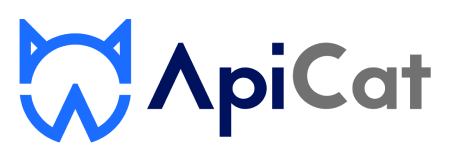English | 简体中文
ApiCat is an API documentation management tool that is fully compatible with the OpenAPI specification. With ApiCat, you can freely and efficiently manage your APIs. It integrates the capabilities of LLM, which not only helps you automatically generate API documentation and data models but also creates corresponding test cases based on the API content. Using ApiCat, you can quickly accomplish anything outside of coding, allowing you to focus your energy on the code itself.
You can try out ApiCat now. It provides all the capabilities of the self-deployed version.
The easiest way to start the ApiCat is to run our docker-compose.yaml file. Before running the installation command, make sure that Docker and Docker Compose are installed on your machine:
docker compose up -dAfter running, you can visit http://localhost:8000 on your browser to start using ApiCat.
If you need to customize the configuration, please refer to our docker-compose.yml file and manually set the environment configuration. After making the changes, please run docker-compose up -d again.
If you have anything you would like to discuss with us, please join our community.



